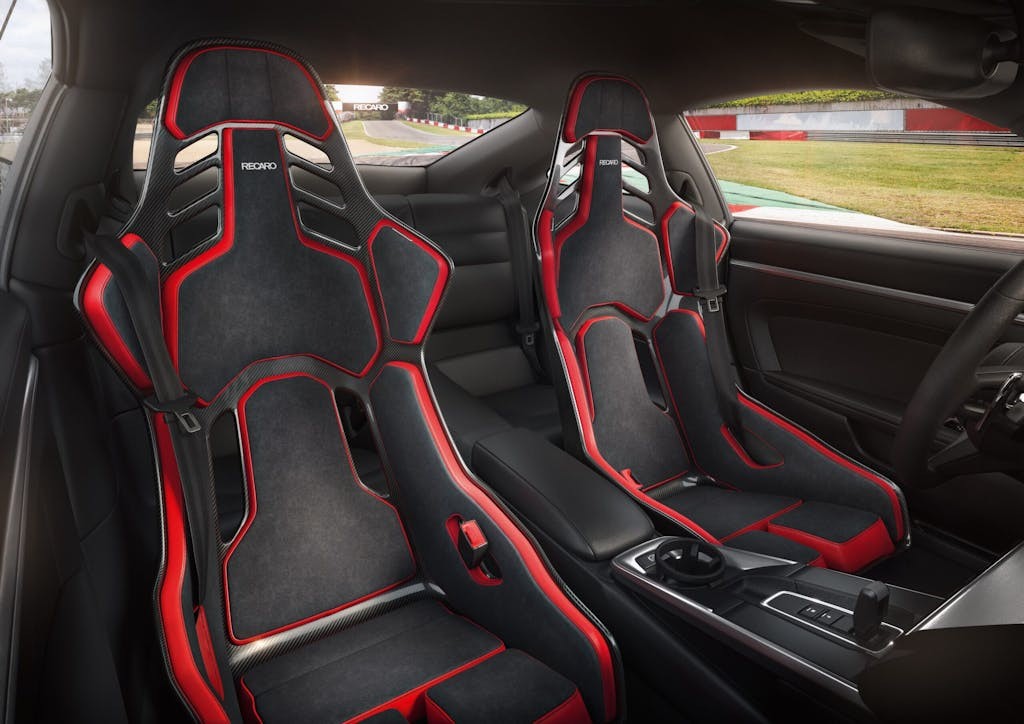The automotive world is currently facing uncertainty as news breaks about the financial instability of key suppliers. Among them, Recaro Automotive, a renowned manufacturer of performance and standard vehicle seating, has officially filed for bankruptcy. This development, first reported by Autocar, signals potential disruptions across the automotive OEM and aftermarket sectors and raises important questions for car enthusiasts and repair professionals alike.
According to reports, Recaro Automotive received approval for self-administration from the Esslingen District Court on Monday. This move comes as a shock to many, especially the workforce at their Kircheim unter Teck factory, who, according to the IG Metall trade union, were reportedly uninformed prior to the announcement. The union has voiced concerns about the future of these workers and is urging Recaro management for greater transparency during this turbulent period.
Recaro Automotive GmbH released a statement on July 29th confirming the insolvency filing. The company cited “extreme price increases in recent crisis years and the loss of a major contract” as the primary reasons for their financial distress. While insolvency payments are expected to cover employee wages during these proceedings, the long-term implications remain unclear. Despite the challenges, Recaro aims to maintain full production to fulfill existing orders and pursue new business, expressing a hopeful outlook for restructuring and strengthening their position under judicial supervision and with the support of Baker Tilly.
Recaro Automotive GmbH facing financial headwinds.
Recaro’s influence extends beyond just automotive. While the current self-administration filing is specific to the automotive division, Recaro also manufactures seats for aviation and gaming, highlighting the breadth of their operations. It’s worth noting that Recaro Automotive was divested by Adient, another major automotive supplier, to Raven Acquisitions, a private investment firm, just four years prior, suggesting potential underlying financial vulnerabilities.
The Recaro name itself is steeped in automotive history, originating in 1963 from the combination of Reuterr Carosserie. However, their legacy predates this, with a strong and enduring partnership with Porsche going back to the early 1950s. Since its formal establishment, Recaro has become synonymous with quality and performance seating, equipping a wide range of vehicles from high-performance supercars like the Aston Martin Valkyrie and various Porsche models to grand tourers such as the Audi R8 and sports cars like the Ford Mustang Shelby GT350. Recaro’s reputation as a trusted brand in motorsports further cements its significance in the automotive world.
Recaro seats are a popular choice for performance vehicles like this Mazda MX-5.
Impact on Automotive Repair and Aftermarket
For automotive repair professionals and enthusiasts, the Recaro Bankruptcies raise several pertinent concerns. Recaro seats are not just a luxury option; they are often integral components in performance and sports models. The bankruptcy could potentially lead to disruptions in the supply chain for replacement parts and new seats. Garages specializing in servicing high-end European and performance vehicles, particularly brands like BMW, Volkswagen, and Ford that Recaro supplies, may face challenges in sourcing original Recaro replacement seats in the future.
Furthermore, the aftermarket sector, which relies on Recaro for performance and sport seats, could also experience supply constraints. Enthusiasts looking to upgrade their vehicle’s seating with Recaro products may encounter limited availability and potentially increased prices in the short to medium term.
From a repair perspective, while existing Recaro seats are durable, wear and tear or accident damage will inevitably necessitate repairs or replacements. The bankruptcy proceedings could complicate warranty claims and access to official Recaro repair services, potentially pushing owners towards aftermarket repair solutions or generic replacements, which may not maintain the original vehicle’s specifications or value.
Broader Implications for the Automotive Industry
Recaro’s financial woes are not an isolated incident. The article also mentions the insolvency proceedings of BBS, another iconic German automotive supplier specializing in wheels. BBS, despite multiple changes in ownership and previous financial difficulties, finds itself in another crisis. This concurrent situation with two established and respected brands suggests a broader trend of financial strain within the automotive supply chain. Factors like rising raw material costs, supply chain disruptions stemming from global events, and the automotive industry’s transition to electric vehicles are likely contributing to the pressures faced by suppliers.
BBS bankruptcy adds to concerns in the automotive supply chain.
The difficulties faced by Recaro and BBS serve as a stark reminder of the challenges within the automotive industry. While both companies express hope for restructuring and continued operation, their situations highlight the need for resilience and adaptability in the face of economic headwinds and evolving market dynamics. The automotive community will be watching closely to see how these situations unfold and hoping for positive outcomes that allow Recaro and BBS to continue contributing their expertise and quality to the automotive world for years to come. We have reached out to both firms for comment and will update this story as the situation develops.
